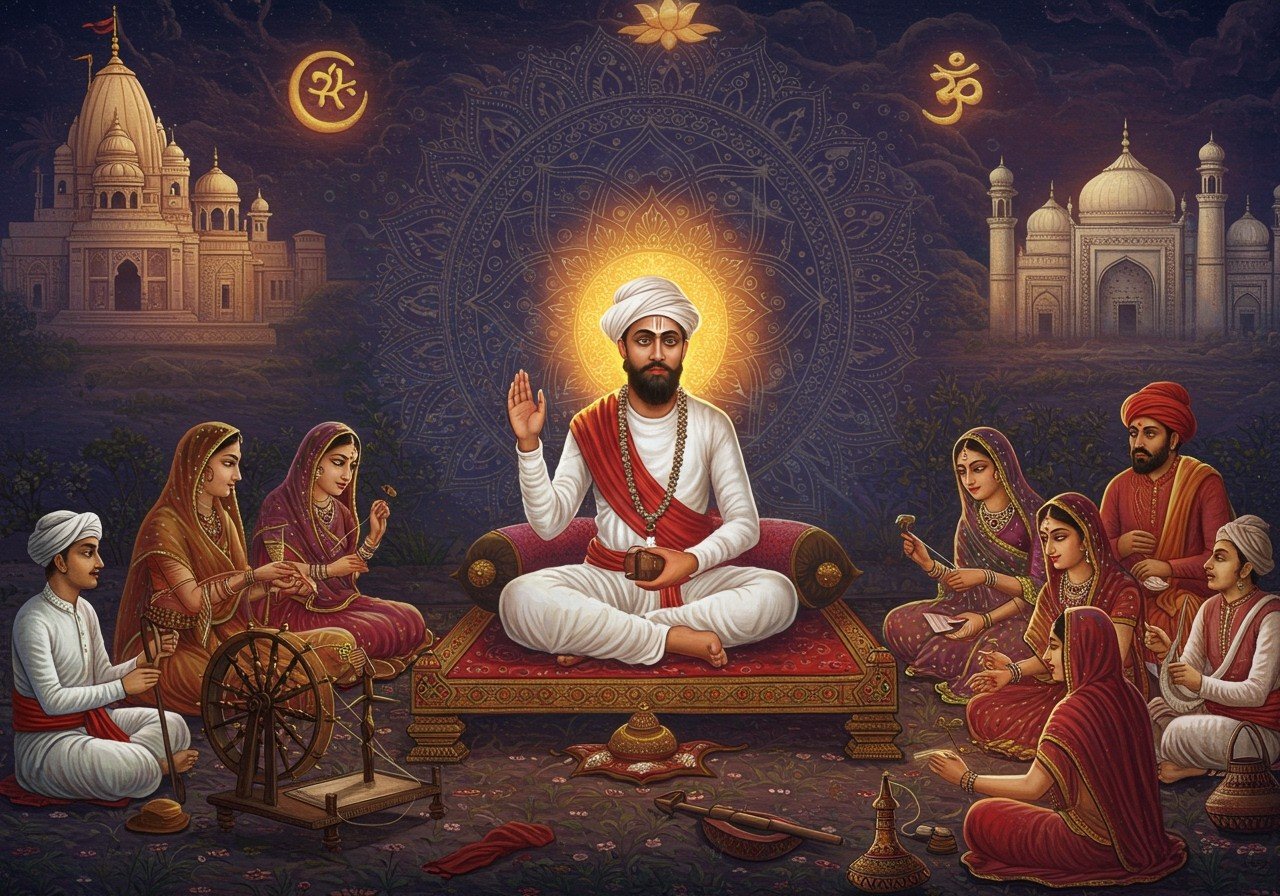
Kabir, the revered 15th-century poet-saint, remains a powerful figure in Indian history. Born in Varanasi, his teachings, bridging the Bhakti and Sufi movements, continue to resonate with contemporary seekers of social justice and equality. His life and works provide a powerful lens through which to examine India’s social and spiritual landscape during a period marked by rigid caste systems and religious dogma.
Kabir’s Role as a Social Reformer
Kabir fearlessly challenged the established norms of his era. He openly criticized the caste system, championing the unity of all humans irrespective of caste or creed. His teachings fostered harmony between Hindus and Muslims, emphasizing a shared spiritual core that transcended religious differences. He rejected ritualistic practices and idolatry in both Hinduism and Islam, advocating for genuine personal devotion as the true path to the divine. Kabir’s courageous stance continues to inspire individuals striving for equality and justice.
For items that support a deeper connection with Kabir’s message of unity and spiritual insight, consider exploring the offerings at Poojn.in. We provide a curated selection of authentic spiritual goods.
Kabir’s Teachings on Social Equality
Kabir’s unwavering commitment to social equality shines through his work. He vehemently opposed caste-based discrimination and championed the upliftment of the marginalized. His poetry powerfully depicted the injustices faced by lower castes and women, urging recognition of the inherent dignity of every individual. By proclaiming the equality of all beings in the eyes of God, Kabir empowered many to question and challenge the prevailing societal norms. His legacy continues to motivate those working towards justice and equality today.
Kabir’s Criticism of Social Injustice
Kabir’s voice resonated with righteous anger against social injustice. He condemned hypocrisy and corruption, particularly amongst religious and political leaders. His poetry served as a potent form of social commentary, exposing the moral failings of society. Often employing satire, Kabir unveiled the hollowness of religious rituals devoid of genuine spiritual meaning. He called for introspection, urging individuals to transcend societal norms and embrace a higher moral code.
Delve deeper into the world of spiritual literature and find resources that resonate with Kabir’s teachings at Poojn.in.
The Enduring Legacy of Kabir’s Ideas
Kabir’s influence has deeply impacted generations. His ideas permeated the Bhakti and Sufi movements, leaving an indelible mark on Indian spirituality. Reformers like Mahatma Gandhi and Dr. B.R. Ambedkar drew inspiration from Kabir’s teachings in their struggles against social inequality. His poetry continues to resonate in popular culture, music, and literature, demonstrating its enduring relevance. Kabir’s message of unity and equality remains vital in contemporary dialogues concerning social reform. He emphasized love, unity, and the pursuit of truth, ideals that continue to resonate with people across generations. His influence has made him a key figure for those seeking spiritual guidance and social change.
Kabir’s Social Impact: A Summary
- Social Reform and Equality: Kabir fiercely opposed caste discrimination and advocated for social equality. He denounced the caste system and spoke out against the oppression of women and marginalized groups, emphasizing the inherent equality of all beings. He believed that everyone, regardless of their background, deserved equal rights and opportunities.
- Religious Harmony: Kabir stressed the unity of God, transcending religious boundaries. He promoted love, tolerance, and interfaith harmony, rejecting religious intolerance and ritualism. He critiqued practices in both Hinduism and Islam that he considered meaningless or unethical, encouraging a focus on inner spirituality. His belief in one God fostered respect and understanding between different faiths.
- Challenging Social Norms: Kabir’s poetry challenged traditional societal standards. He encouraged questioning conventional norms and embracing spirituality, addressing issues like casteism, gender inequality, and religious conflict. He sought to inspire people to think critically about societal structures and strive for positive change. His verses often served as a catalyst for introspection and societal reform.
- Inner Reflection and Self-Realization: Kabir encouraged inner reflection and self-realization over adherence to rigid religious doctrines. He emphasized the importance of recognizing one’s own inner divinity, believing that God resides within each person. He urged individuals to look inward for spiritual truth rather than relying solely on external authorities. His focus on inner transformation contributed to a more personalized and meaningful spiritual experience.
Kabir’s Contemporary Relevance
Kabir’s poetry remains strikingly relevant today. His work provides a valuable framework for discussing religious diversity, especially in times of social discord. His legacy of challenging religious orthodoxies fosters dialogue and offers hope for a more harmonious future. In an era where religious narratives can be manipulated to create division, Kabir’s influence serves as a counterpoint, promoting empathy and combating ignorance. His teachings encourage introspection and challenge us to move beyond superficial differences to recognize our shared humanity. To integrate these principles into your daily life, consider exploring the range of spiritual tools available at Poojn.in.


